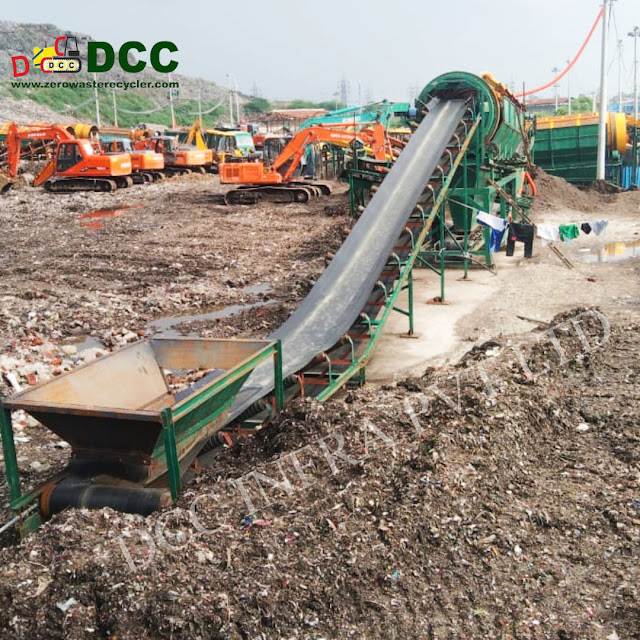DCC Manufacturers of Solid Waste processing plant and equipment such as Trommel Screening Machine, Ballistic Separator, Baling Machine.
Saturday, September 25, 2021
Waste Management & Recycling Services in India
India faces major environmental challenges associated with waste generation and inadequate waste collection, transport, treatment, and disposal. Current systems in India cannot cope with the volumes of waste generated by an increasingly urban population, and this impacts on the environment and public health. DCC, initiative waste Recycle is the largest waste management solution in India. We strategize to bring in environmental solutions that can help the communities and organizations to become sustainable.
For more info, Call: +91-7290049003 or Email: info@zerowasterecycler.com
https://www.zerowasterecycler.com/
Wednesday, September 15, 2021
Plastic EPR Services, Zerowaste Recycler Services all over India - DCC
Our network and tie-up with various Corporations and ULBs has lead us to
the expansion of our work by providing Plastic EPR Service Provider at
Pan India Level and we can support you with a safe disposal certificate
helpful for the registration process. For more info, Call: +91-7290049003 or Email: info@zerowasterecycler.com
Monday, September 6, 2021
Legacy Waste Management in India
More than 3,000 garbage dumps in India want to be restored or
completely closed. Scientifically unsustainable waste disposal reasons
irreversible harm to the environment: It produces leachates, emits
greenhouse gases, and contaminates groundwater, and so on.
Leachate
is any liquid that, while passing via waste, releases soluble or
suspended contaminants. It is risky in nature. The environmental,
environmental, and monetary influences regularly make landfills a risk
to be controlled. There is a pressing want, therefore, to reclaim
present landfills to make certain the supply of landfills and to recycle
the disused sources included into old landfills.
Significantly, there are two possible ways to manage asset waste.
- Scientific writing, widely used in scientifically constructed landfills
- A landfill / bio mining mine, which is a technology-enabled and economically managed resource for recycling and other components that generate revenue from waste disposal by landfill.
Therefore, the first step in restoring a landfill is to analyses the technical limitations such as the characteristics and structure of the waste heritage to assess the feasibility of rehabilitating landfill sites.
The composition of the heritage waste from the four garbage dumps in India indicates that there are four key components of fine waste: fine soil/materials such as sand, polymeric waste and flammable materials, stones (over 20 Milli meters in size) and mixed materials. It is important to understand that the formation of older waste or heritage waste is not the same as new municipal waste.
Heritage waste management ought to be integrated with an incorporated
waste control facility with enough ability to collect, do away with and
do away with stable municipal waste generated on a day-by-day
foundation in addition to historical past waste trapped in landfills. The cash-producing devices can assist produce a roundabout economy in India’s sustainable business version for years to come.
However,
it can be a challenge for all stakeholders to embrace these strategies
in real-life situations due to a number of economic and legal
conditions. There is a lot of uncertainty and unexpected situations that
can arise and affect so-called ‘green businesses. There is a clear and
urgent need for collaboration between academia, industries, and
policymakers in order to develop a sustainable business model for legacy waste management based on the principles of the circular economy.
Bio-mining

Biomining is the technique
of the use of microorganisms (microbes) to extract metals of the financial
hobby from rock ores or mine waste. Biomining techniques can also be used to
smooth up sites that have been polluted with metals.
Biomining process by which garbage is handled with bio-organisms or herbal factors like air and daylight in order that the biodegradable factors in the waste destroy down over time. Civic government in the rate of gathering waste, normally unload blended waste – biodegradable and non-biodegradable – in the rubbish dump sites over the years.
Through bio-mining, this
unsegregated gathered heap of waste is uncovered to bio-organisms and to air
and the solar in order that the biodegradable waste a few of the layers
receives decomposed via the herbal process. Whatever is left over might be
non-biodegradable material, which must be treated separately.
Originally Content Source: https://www.zerowasterecycler.com/what-to-do-with-legacy-waste-in-india/

